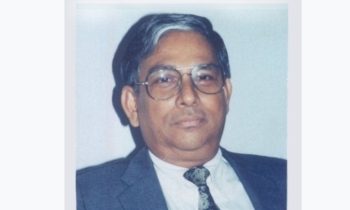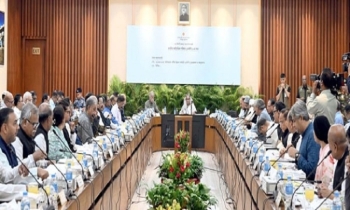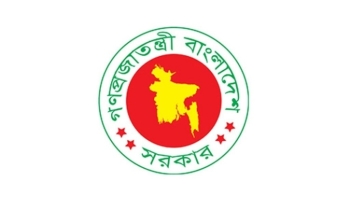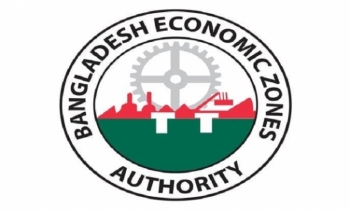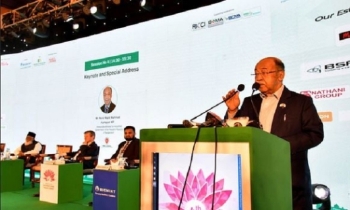Bangladesh must prepare to reap 4IR benefits in healthcare, IT: Speakers
BI Report || BusinessInsider
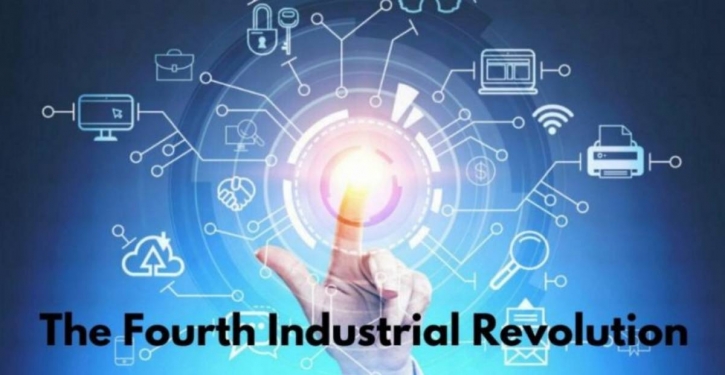
Photo: Representational
The fourth industrial revolution (4IR) has brought dramatic changes in many sectors and can also play a crucial role in the development of Bangladesh. So, the country needs to be prepared to reap benefits of the 4IR in sectors like healthcare and IT.
The observations came from a dialogue organised by the Centre for Policy Dialogue (CPD) in collaboration with Friedrich-Ebert-Stiftung (FES), Bangladesh on Thursday.
The dialogue was based on a research titled “The Future of Work in Bangladesh,” and under this programme, CPD has prepared two papers titled: “Transforming Bangladesh’s Healthcare in the Fourth Industrial Revolution” and “Artificial Intelligence and Its Impact on the Information Technology (IT) Service Sector,” according to a press statement.
Dr Fahmida Khatun, executive director, CPD, chaired the session, while Shadhan Kumar Das, Programme Co-ordinator, Friedrich-Ebert-Stiftung (FES) Bangladesh Office delivered the welcome remarks at the programme.
In the process of adopting 4IR technologies, Bangladesh has recently seen tremendous growth and prosperity in various sectors including IT services industry as well as the healthcare services.
In the context of the 4IR’s impacts and subsequent challenges posed on the two aforementioned sectors in Bangladesh, it is a pressing need that we should address those challenges and assess the impact of using technology and information services in these sectors, observed the participants, according to the statement.
They also recommended that various aspects of 4IR should get necessary reflections in the policy agendas, which will pave way for Bangladesh’s preparedness for the digital age which will determine how Bangladesh would be able to reap the full benefits of the 4IR.
Syed Yusuf Saadat, senior research associate at CPD and Nadia Nawrin, programme associate of the same organisation conducted the presentations.
During his presentation, Saadat mentioned that Bangladesh has achieved significant progress on indicators related to Sustainable Development Goal (SDG) 3, which calls on countries to guarantee that everyone enjoys good health and well-being.
“Nonetheless, Bangladesh’s healthcare system remains fundamentally vulnerable due to years of negligence. The 4IR is expected to disrupt the existing healthcare system by increasing the speed of services, improving the ability to manage illnesses, and changing the role of patients as well as the relationship between patients and healthcare service providers,” said Sadat, as per the release.
He continued, “Therefore, in order to take full advantages of the revolution, healthcare in Bangladesh would require significant investments in technology from the government, private sector, and international development partners. Without such investment in the healthcare sector, the targets under SDG 3 cannot be achieved by 2030.”
The study pointed out the need to identify areas where investments in technology can help improve the quality and increase the affordability of healthcare.
In view of the above scenario, the study utilises nationally representative microdata of 1,600 health facilities and 5,400 healthcare service providers from the Bangladesh Health Facility Survey 2017 to estimate the impact of the use of technology and information services on health outcomes.
The other study on artificial intelligence (AI) pointed out that the IT service has embraced AI more than any other sectors.
Nawrin, the CPD programme associate, highlighted that technology is undoubtedly playing an important role in Bangladesh’s development.
“However, technology disrupts the labour market in terms of displacing workers,” she said, adding that the study discusses some of the challenges that Bangladesh IT sector faces at present, according to the press statement.
She particularly mentioned that the emerging automation and cutting-edge technology is deemed as a threat to its human counterpart, especially to the older workers in the IT sector of Bangladesh.
Moreover, complications persist in the IT services industry in terms of the existing gap between the lack of skillsets among the professionals and the knowledge required to meet the industry’s objectives.
“Even the employers sometimes fail in taking necessary measures for re-skilling and upskilling the employees. Hence, a number of coordinated efforts from the employers, the employees and the government are essential to address the challenges in this sector,” she added.
Dr Shagufa Anwar, former director of communication, United Hospital; Dr Sejuti Rahman, assistant professor, Department of Robotics and Mechatronics Engineering, Faculty of Engineering and Technology, University of Dhaka; M Manjur Mahmud, director and COO, DataSoft Systems Bangladesh Limited; Dr Arif Mahmud, deputy director, Medical Services, EverCare Hospital, Dhaka; Dr Wasif Ali Khan, scientist, International Centre for Diarrhoeal Disease Research, Bangladesh (ICDDR,B); Dr Md Abdur Razzaque, professor, Department of Computer Science and Engineering, University of Dhaka; Syed Akhter Hossain, Professor and Head, Department of Computer Science and Engineering, University of Liberal Arts Bangladesh (ULAB); Professor Md. Shazzad Hosain, Department of Electrical and Computer Engineering & Director, NSU Startups Next, North South University (NSU) and Dr Taufique Joarder, vice-chairperson, Public Health Foundation, Bangladesh, were present as the distinguished panellists.
IT experts, researchers, healthcare professionals, policymakers, development practitioners, academics, business leaders, civil society representatives, international development partners, and journalists attended the event.

